
Description
End-of-Life Certification Course: Accompanying the Dying Patient download , End-of-Life Certification Course: Accompanying the Dying Patient review , End-of-Life Certification Course: Accompanying the Dying Patient free
End-of-Life Certification Course: Accompanying the Dying Patient
As a healthcare professional, you do everything you can to be there for your dying patients.
That often includes holding a hand, granting a final desire, having difficult conversations… and doing your best to make sure no one has to die alone. It is a privilege to be allowed into this space to support the emotional needs of end-of-life patients and their loved ones.
But sustained exposure to suffering and loss can take a toll on your mental and emotional well-being… and feeling exhausted and emotionally drained shift after shift can lead to decreased morale, communication breakdowns, and compromised patient care.
The hard truth is that healthcare professionals delivering end-of-life care need a combination of up-to-date knowledge, compassion at the bedside, and advocacy skills — for their patients and themselves.
With the powerful End-of-Life Certification Course, you will advance your skills and transform your practice with these topics:
Crucial Conversations | Prognostic Scales | Medication Management of Symptoms & Pain Honoring Cultural Preferences | Red Flags of Compassion Fatigue | Ethical and Legal Dilemmas EOL Dietary Management | And more!
End your shifts feeling fulfilled, not drained, knowing your most vulnerable patients are receiving exceptional, up-to-date care. Get started now!
Advance Your End-of-Life Skill Set…
Register now for the most powerful end-of-life online training course and you’ll unlock the latest evidence and best practice guidelines! What you can expect to take away:
- Incorporate serious illness messaging & crucial conversation guidelines
- Deliver specific care for end-stage patients: Liver, kidney, lung/heart disease, & cancer
- Pharmacological update to manage distressing end-of-life symptoms
- Ethical and legal dilemmas related to advanced care planning for your dying patients
- Delve into cultural influences on end-of-life beliefs and decisions
- Analyze how perspectives on the afterlife affect individual responses to death
- Discriminate medications for breakthrough pain, when opioids are not effective
- Design your compassion and empathy toolkit to maintain purpose, fulfillment, & to thrive
- Analyze the role of guilt in the development of prolonged grief
- Explain the use of therapeutic diets and dietary supplements on nutrition
- Develop the skills to work through palliative referrals, financial considerations, and hospice eligibility criteria
Learn from 9 End-of-Life clinical authorities including nurse practitioners, an international grief specialist, a healthcare attorney, mental health experts, a dietitian nutritionist, advanced certified hospice and palliative nurses, and more!
They see end-of-life patients in their respective specialized practice settings. Not only will they synthesize the latest research, but they’ll also deliver tips and advice learned through their extensive patient care experiences.
What Will I Learn?
Pharmacology of Pain Management at the End-of-Life
Pain management at the end-of-life is the right of the patient and the duty of the clinician. In this session, bedside clinical nurse specialist Paul Langlois shares insights from his decades of experience caring for high-needs patients, such as multi-system organ failure patients. Walk away knowing the latest pharmacologic modalities to treat pain at the end-of-life, including:
- Opioid and non-opioid medication, like NSAIDs, benzodiazepines, and antidepressants
- Common complications; drug-drug interactions, drug-food interactions, and organ failure
- Appropriate sleep aid medications for EOL patients
Plus, earn up to 3.0 Pharmacology and 3.0 Pain Management CE Hours!
Pharmacology Update: End-of-Life Symptom Management
It’s hard to see someone at end-of-life struggle with non-pain symptoms, like labored breathing or nausea, whether you’re a family member or a practitioner. In this session, national award-winning advanced practice nurse, Dr. Francine Hoh gives you a guide to managing common, non-pain symptoms to alleviate your patients’ suffering at the end-of-life. Walk away with:
- Appropriate treatment plans for end-of-life dyspnea and fatigue
- Pharmacological and non-pharmacological solutions to manage nausea, vomiting, constipation, diarrhea, and anorexia
- Ways to treat anxiety, depression, and existential distress at end-of-life using medications
- An interdisciplinary approach to end-of-life care, including family education
- Case studies and sample assessment tools
Plus, earn up to 3.0 Pharmacology CE Hours!
End-Stage Diseases: Care When There is No Cure
Each particular end-stage disease has unique complexities for the patient, the family, and the healthcare professional. In this module, certified hospice and palliative care nurse, Lores Vlaminck walks you through specific strategies to care for various end-stage patients, including end-stage liver, kidney, lung disease, heart disease, and cancer. Discover:
- Pharmacological interventions to provide palliative care measures
- Assessment scales to predict poor survival rates
- Clinical Practice Guidelines from the National Coalition for Hospice and Palliative Care
Plus, earn up to 1.0 Pharmacology CE Hour!
Palliative Wound Care
Palliative wound care utilizes mutual goal setting to maximize the quality of life in patients where wound healing may not be the primary goal. Knowledge of pain management, decreased dressing change frequency, and infection prevention methods can facilitate successful outcomes in this specialized cohort of wound patients. Learn about the special considerations of palliative wound care including an increased emphasis on infection prevention, comfort, and pain management. In addition, hear which management strategies are contraindicated in certain palliative wound types to avoid complications.
Nourishing the Older Adult: Challenges and Controversies
The food we eat has such a profound impact on our health, but it can be a challenge to meet your patients’ unique nutritional needs at the end-of-life. In this session, Gerontological Nutrition Specialist Liz Friedrich outlines key nutrients needed by older adults, the roles they play, and food sources of those nutrients, as well as potential barriers to providing effective nutrition interventions. You’ll discover:
- Evidence-based therapeutic diets for disease management
- How a poor diet can lead to cognitive decline
- Ways to use dietary supplements to meet nutritional needs
End-of-Life: Palliative and Hospice Care Benefits
Each end-of-life patient trusted to your care deserves to be optimally supported, on the final journey of their life. In this session, award-winning EOL Nursing educator Lores Vlaminck gives you concrete strategies to identify patients for whom aggressive therapy is not appropriate, skills to work through palliative referral and financial considerations, and updated hospice eligibility criteria. Together you’ll cover:
- The myths surrounding hospice care services
- The pillars of Palliative Care, including barriers and benefits
- Medicare Hospice Benefit
End-of-life Compassionate Care: Ethical and Legal Issues
Learn how to prevent or minimize suffering while respecting your dying patients’ wishes. Through case studies and compelling lectures, nationally acclaimed nurse-attorney Lois Fenner McBride shows you common ethical dilemmas and plausible resolutions for providing safe and compassionate end-of-life care. Discover:
- Ways to cope with the ethical dilemmas that occur with end-of-life caregiving
- Legal defenses against professional negligence or malpractice claims related to EOL care
- Suggested EOL patient checklists, including living wills and pet trusts
Plus, earn up to 1.5 Ethics CE Hours!
Culture into Practice: Improving the End-of-Life Experience
We know a patient’s approach to illness and death is directly impacted by their culture. In this module, medical social work expert, Dr. Latasha Ellis shows you how to deliver end-of-life care that is unique to each patient and their cultural backgrounds, values, and beliefs in order to meet their individual needs and different expectations of the dying process. You’ll cover:
- Categories of Cultural Influence
- Social Drivers of Health
- Cultural Considerations for Dying Gracefully
- Family Dynamics
- Leaving a Legacy
Plus, earn up to 3.0 Cultural Competency CE Hours!
Finding Meaning at the End-of-Life
Looking into the face of death is one of the scariest and most emotional battles that your patients will ever have to go through. Internationally acclaimed grief specialist Ligia Houben uses her experience training bereavement support group leaders to transform the way you treat patients struggling with death, dying, and bereavement. Walk away knowing how to:
- Assist clients and their caregivers with end-of-life preparation, including legal documents and advanced care planning
- Manage pain and provide comfort at the end-of-life
- Start difficult conversations with family members who may not yet be ready to accept that their loved one is dying
Serious Illness Messaging and Crucial Conversations
Sometimes it feels like the conversations we have with our patients would be better suited for a therapist’s office. However, guiding patients through their medical treatment and care involves very specific, and often emotional, discussions with them. In this module, Palliative Care Clinical Nurse Specialist, Nancy Joyner tells you the four most powerful words when making advanced care plans and helps you address the hardest questions, like “How long do I have?” You’ll get:
- Questions to initiate important Advance Care Planning (ACP) conversations
- The updated 2023 Serious Illness Conversation Guide PDF
- Tips for raising awareness of ACP in your facility
- Case studies to practice communication and shared decision-making
Older Adults with Pain: Most Effective Pharmacologic and Non-Pharmacologic Therapies
Pain can very seriously impact activities of daily living and quality of life for our elderly patients. Multiple comorbidities, polypharmacy, and potential for harm make it a challenge to determine the appropriate drug, dosages, and maintenance of therapy. Steven Atkinson, PA-C, MS, will deliver evidence-supported updates for pharmacological and nonpharmacological therapies to manage pain in the elderly.
Frequently Asked Questions:
- Innovative Business Model:
- Embrace the reality of a genuine business! Our approach involves forming a group buy, where we collectively share the costs among members. Using these funds, we purchase sought-after courses from sale pages and make them accessible to individuals facing financial constraints. Despite potential reservations from the authors, our customers appreciate the affordability and accessibility we provide.
- The Legal Landscape: Yes and No:
- The legality of our operations falls into a gray area. While we lack explicit approval from the course authors for resale, there’s a technicality at play. When procuring the course, the author didn’t specify any restrictions on resale. This legal nuance presents both an opportunity for us and a boon for those seeking budget-friendly access.
- Quality Assurance: Unveiling the Real Deal:
- Delving into the heart of the matter – quality. Acquiring the course directly from the sale page ensures that all documents and materials are identical to those obtained through conventional means. However, our differentiator lies in going beyond personal study; we take an extra step by reselling. It’s important to note that we are not the official course providers, meaning certain premium services aren’t included in our package:
- No coaching calls or scheduled sessions with the author.
- No access to the author’s private Facebook group or web portal.
- No entry to the author’s exclusive membership forum.
- No direct email support from the author or their team.
We operate independently, aiming to bridge the affordability gap without the additional services offered by official course channels. Your understanding of our unique approach is greatly appreciated.
- Delving into the heart of the matter – quality. Acquiring the course directly from the sale page ensures that all documents and materials are identical to those obtained through conventional means. However, our differentiator lies in going beyond personal study; we take an extra step by reselling. It’s important to note that we are not the official course providers, meaning certain premium services aren’t included in our package:
Refund is acceptable:
- Firstly, item is not as explained
- Secondly, Item do not work the way it should.
- Thirdly, and most importantly, support extension can not be used.
Thank you for choosing us! We’re so happy that you feel comfortable enough with us to forward your business here.

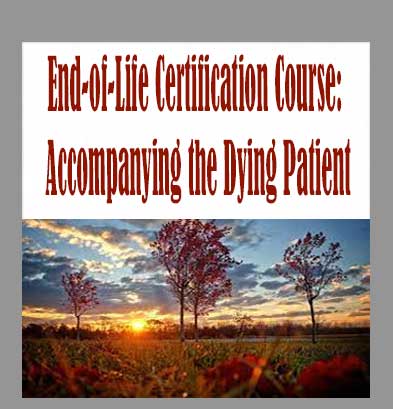
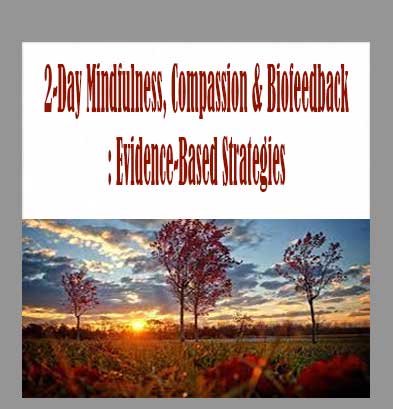

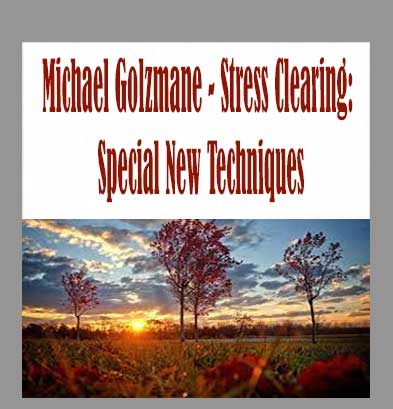
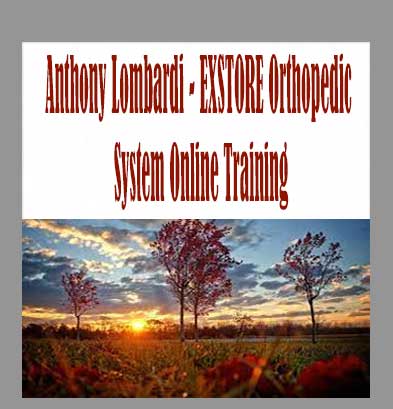
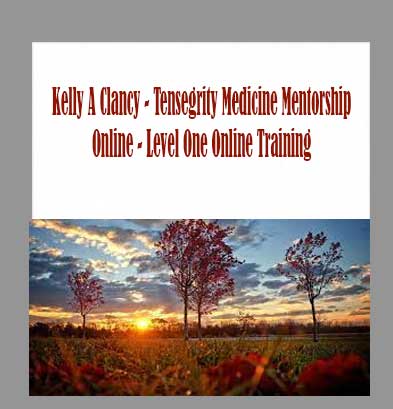

Reviews
There are no reviews yet.